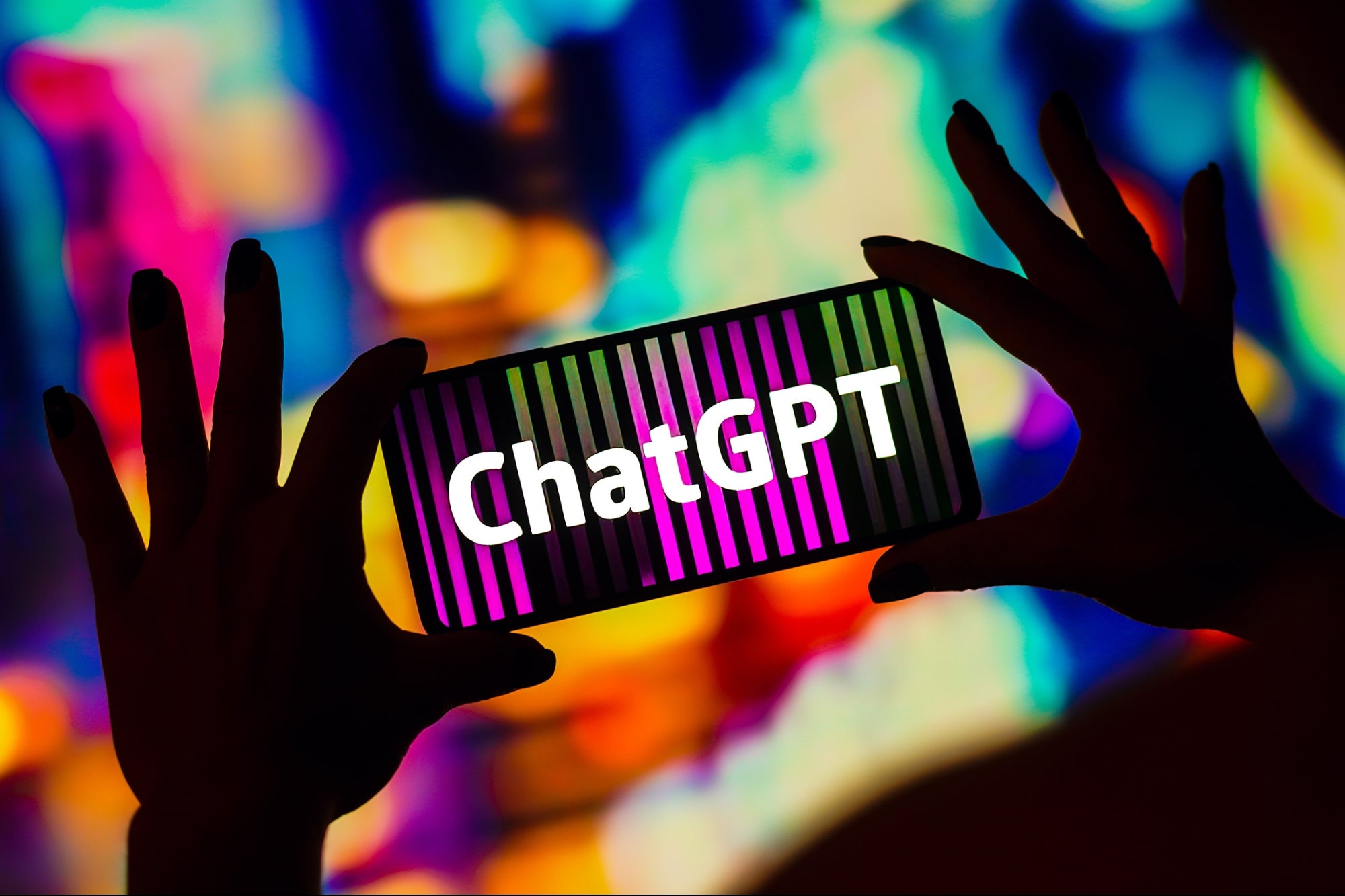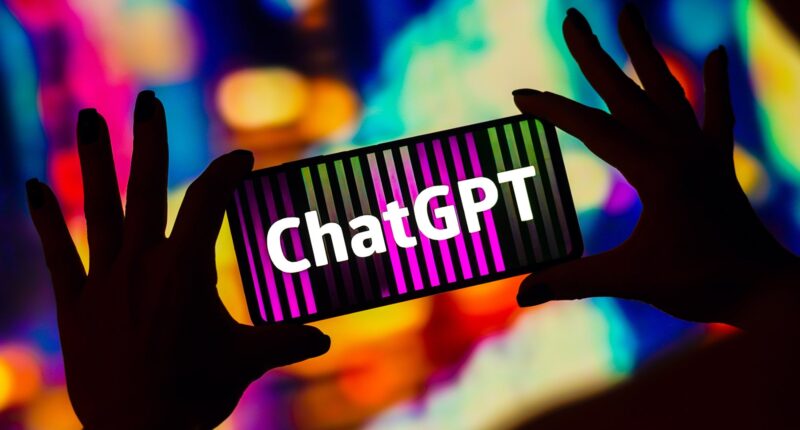
Opinions expressed by Entrepreneur contributors are their own.
Looking to build your personal brand, but struggling with the time commitment required to write a LinkedIn post or, even worse, a lengthy thought leadership article? You are not alone. A fellow entrepreneur recently said to me: “I would rather have another C-section than sit down and write!” That is chuckle-worthy but relatable to so many of us, isn’t it?
Enter ChatGPT. As this chatbot continues to make waves across the digital world, becoming a hot topic of conversation both in boardrooms and in coffee shops across the globe, many entrepreneurs are seeing this impressive AI tool as the perfect solution to their content creation bottlenecks. The demand for this magical wand overwhelmed the servers, making them crash or simply unable of processing the load. Suddenly, we are seeing many entrepreneurs churn out social media and blog posts at staggering speeds, thanking ChatGPT for providing the content they can simply copy + paste into their platforms of choice. Enter bad news. I decided to write this article at the risk of sounding like a Grinch who stole the proverbial Christmas, but I promise to offset the mood I may dampen with some practical advice.
Related: The Dark Side of ChatGPT: Employees & Businesses Need to Prepare Now
The risks of using ChatGPT as your personal branding ghostwriter
As a personal branding expert, I have no choice but to advise you against using ChatGPT as your ghostwriter. Let me tell you why.
When it comes to creating content with the goal of building a compelling personal brand, your strategy must rest on at least one of the following three pillars:
-
Thought leadership
-
Opinion leadership
-
Experience sharing
Sometimes we curate and share someone else’s content (giving them credit, of course) or share something purely for entertainment purposes. The rest of the content we put out online, however, must reflect our thoughts, our opinion and our experiences.
This is where using ChatGPT can become problematic. When you “hack” the content creation process by copying and pasting its answers, you are leveraging someone else’s thoughts and opinions rather than your own. Why is it a problem? At best, your personal brand will feel unoriginal, uninspired and lacking the emotional connector that compels audiences. At worst, you will find yourself building a personal brand rooted in phoniness, thus foregoing what a personal brand should be rooted in: radical authenticity.
The “copy and paste” approach runs two other risks.
The first is the risk of misinforming your audience. According to ChatGPT itself, it can provide inaccurate or outdated information and can make mistakes. This was the risk we took when plagiarizing from a friend’s paper during school days, and it is the same risk we take today when plagiarizing from an AI tool.
The second risk is that a multitude of other entrepreneurs might have asked ChatGPT the exact same question that you asked and are creating a carbon copy post or article to yours. I give talks to entrepreneurs across the globe, and I know that we all complain about the noise and the repetitive “trash” (your words!) that we are inundated with online. Why add to it?
Related: What Does ChatGPT Mean for the Future of Business?
How to leverage ChatGPT to build your personal brand
By now you might be thinking that I am passionately advocating against ChatGPT for content creation, but you couldn’t be more wrong. I believe it is a fantastic tool that can aid us in the exact same way that Google translate aids but does not replace the actual work a translator does. I leverage it personally and within my personal branding agency. As promised, here are four ideas for how you can leverage ChatGPT successfully:
-
If writing is not a strength of yours, use your gift of the spoken word instead. Ask yourself a question, and record yourself answering it. Take the recording, put it through a transcription software such as OtterAI, and then take the raw text and put it into ChatGPT. This way, you will be leveraging it to edit your thoughts, your opinions and your experiences without having to do any of the actual writing. The quality of writing might sound generic, but at least there will be nothing generic about the content itself.
-
Not sure what to write about? Use ChatGPT to brainstorm ideas. Tell it that you are looking to write an article, specify the audience, define the overarching theme (it can be general), and ask it to give you 10 ideas. Choose the one that speaks to you, and refer to point #1 for the steps to take.
-
ChatGPT is particularly useful for adding punchy opening lines or engaging closing sentences. Yes, it will typically end each closing paragraph with “in conclusion,” but that can be edited out. Specify the tone you want: professional or serious, funny or humorous, engaging or light-hearted, and ask for variations to select from.
-
Use it for article title ideation. I asked ChatGPT for five ideas for the title of this article and here is what it gave me:
-
“From Personal Branding to Plagiarism: The Risks of Relying on ChatGPT for Content Creation”
-
“ChatGPT: A Powerful Tool for Personal Branding or a Shortcut to Phoniness?”
-
“Leveraging ChatGPT for Personal Branding: Tips and Tricks from a Branding Expert”
-
“Radical Authenticity in Personal Branding: Why Copying and Pasting from ChatGPT Won’t Cut It”
-
“ChatGPT for Personal Branding: How to Use it Wisely Without Sacrificing Your Authentic Voice”
-
Those are five great options. I felt that they were long for my style and voice, so I asked ChatGPT to shorten the fourth option. The result is what I chose as the title of this article — an interesting, on-brand title that ChatGPT and I collaborated on for a speedy result.
Related: How to Use AI Tools Like ChatGPT in Your Business
I hope to see more entrepreneurs leverage tools like ChatGPT — but without sacrificing human intelligence for an artificial one. The concept of “radical authenticity” in personal branding is what resonates with all entrepreneurs. I hear it almost universally, no matter the city or country in which I am delivering a talk. Collectively, we seem to agree that “fake it till you make it” is outdated and unfortunate advice (I wrote about it here and received an overwhelming amount of feedback from you echoing this sentiment).
And yet, as we feel enamored with the impressiveness of this new tool, we suddenly forget that copying and pasting is the antithesis of authenticity. We have so much to share with the world, so many battlefield stories to tell and so many ways in which we can leverage our experience to pay it forward. Why reduce it all to the platitudes pre-generated for us, polluting the online platforms and running the risk of your readers uncovering that the posts and the articles under your name are not even yours at all?
This article is from Entrepreneur.com









